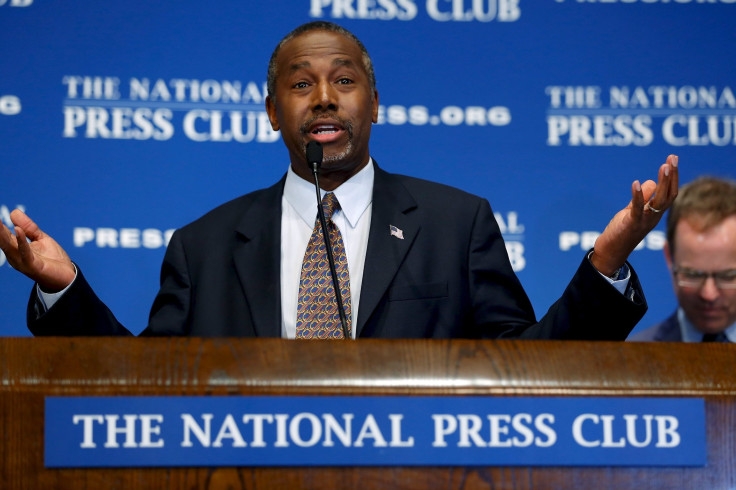Ben Carson Osama Bin Laden Capture? US Could Have Caught Terrorist Much Sooner, Republican Presidential Candidate Says

Republican presidential candidate Dr. Ben Carson offered the solution this weekend to how the United States could have caught Osama bin Laden a lot sooner than it did. If only President George W. Bush had decided to stop using foreign oil, moderate Arab countries would have turned over bin Laden, Carson said Sunday on ABC’s “This Week.”
"I think they would have been extremely concerned if we had declared -- and we were serious about it -- that we were going to become petroleum independent, because it would have had a major impact on their finances," Carson said in an interview with George Stephanopoulos. "And I think that probably would have trumped any loyalty that they had to people like Osama bin Laden."
Stephanopoulos pushed back against the idea that Middle Eastern countries had any loyalty to bin Laden, reminding Carson that Saudi Arabia had expelled him. But that did not seem to deter the neurosurgeon-turned-politician.
"Well, you may not think that they had any loyalty to him, but I believe otherwise," Carson said.
"I think they would have known where he was," Carson added. "You know, there were indications, for instance, during the Clinton administration that -- that they knew exactly where he was but didn't necessarily pull the trigger. If we could tell where he was, I'm certain that they knew where he was."
Carson’s remarks repeated an idea he brought up during the second Republican presidential debate last month, when he said that if Bush had announced a plan to end reliance on oil from the Persian Gulf “within five to 10 years,” that would have sparked cooperation from moderate Arab states in two weeks.
After Carson’s comments about the Clinton administration, Stephanopoulos questioned Carson again. "But at that point, we had some idea, but we didn't know for sure. I simply don't understand how you think this would have worked," he said.
Carson responded by talking about Iraq.
"Well here's the point -- here's my point. My point is, we had other ways that we could have done things. I personally don't believe that invading Iraq was an existential threat to us. I don't think Saddam Hussein was an existential threat to us. It's a very different situation right now. Now, we have global jihadists who want to destroy us and our way of life," Carson said.
Stephanopoulos pointed out that he had been asking about Afghanistan, which had been harboring bin Laden, but Carson said that was not his focus. The presidential candidate has been questioned before about claims he has made regarding global history. Politifact, for example, punctured Carson’s comments earlier this month that the Palestinian leader Mahmoud Abbas knew Iran’s Ayatollah Khamenei and Russian president Vladimir Putin in 1968 in Moscow.
Carson’s conversation also comes as fellow GOP candidates Jeb Bush and Donald Trump have been battling it out over Trump’s remarks that Bush’s brother, President George w. Bush, should take some blame for the Sept. 11, 2001, attacks.
© Copyright IBTimes 2024. All rights reserved.






















